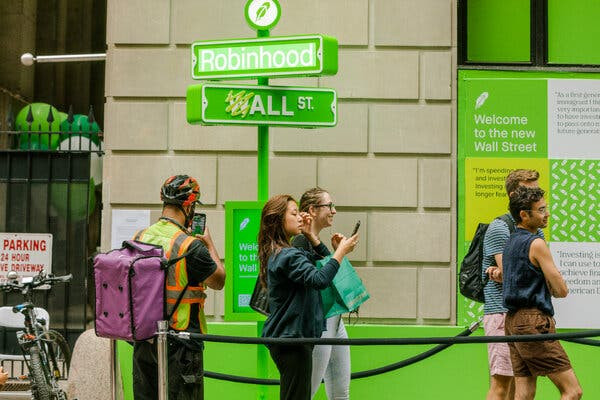
Robinhood is the latest to offer investors a novel, and potentially risky, investment opportunity: crypto that’s meant to give exposure to the likes of OpenAI.

Andrew here. Keep an eye on Republicans’ major policy legislation, which the House appears likely to pass in the next couple of hours, and the latest jobs numbers at 8:30 a.m. Eastern.
But the story that’s roiling corporate America today is an effort by several financial firms to sell the equivalent of shares in private companies like OpenAI and SpaceX to the public — via a clever workaround of investor-protection rules. I dive into the issue and the questions it raises below.
For years, Wall Street fund managers have talked about opening private markets to ordinary investors.
Some tech companies are rolling out what they say are ways to help investors get into hot, privately held start-ups like OpenAI. In truth, what’s happening in many cases appears to be an end run around rules to protect investors.
It’s about so-called tokenization. This week, Robinhood began offering “tokens” in OpenAI and SpaceX that are supposed to reflect the valuations of the privately traded companies. In other words, it is pitching them as offering stocklike exposure to start-ups that average people can’t buy into otherwise.
But the tokens are available only to investors in the E.U., to avoid breaking American laws that preclude such sales. And OpenAI made clear it wasn’t a fan of the move:
We did not partner with Robinhood, were not involved in this and do not endorse it. Any transfer of OpenAI equity requires our approval — we did not approve any transfer. Please be careful.
Vlad Tenev, Robinhood’s C.E.O., clarified that the tokens aren’t technically “equity” but that they “effectively give retail investors exposure to these private assets.” (Robinhood isn’t alone: The start-up Republic is offering tokens meant to track the equity performance of SpaceX. Those will be sold to U.S. investors via a loophole in a 2012 securities law.)



